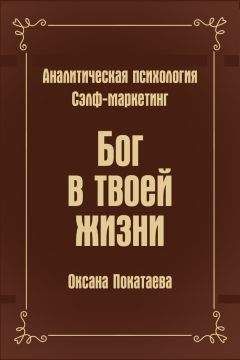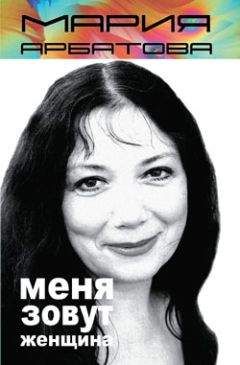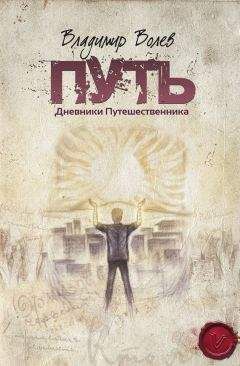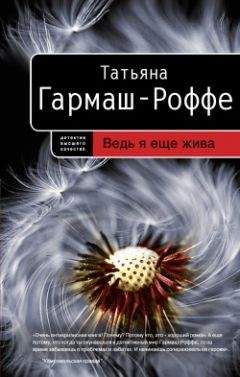Илья Франк - Английский язык с У. С. Моэмом. Театр
зрелость) and its results are often strange (и его результаты часто странные)."
"It seems so deceitful of Roger (это кажется таким вероломным со стороны
Роджера) to have harboured thoughts like those all these years (вынашивать
подобные мысли все эти годы; to harbour — становиться в гавань,
приютить, затаить) and never breathed a word about them (и никогда и
словом не обмолвиться о них; to breathe — дышать, жить). He might have
Мультиязыковой проект Ильи Франка www.franklang.ru
803
been accusing me (он, может быть, обвиняет меня)." She gave a chuckle (она
хмыкнула; chuckle — тихий смех; хихиканье). "To tell you the truth (сказать
тебе по правде), when Roger was talking to me (когда Роджер говорил со мной)
I felt just like Hamlet's mother (я чувствовала себя матерью Гамлета)." Then
with hardly a break (и затем, без перерыва: «едва ли с перерывом»): "I wonder
if I'm too old to play Hamlet (интересно, не слишком ли я стара, чтобы играть
Гамлета)?"
"Gertrude isn't a very good part, is it (Гертруда — не очень-то хорошая роль,
так ведь)?"
Julia broke into a laugh of frank amusement (Джулия залилась смехом
искреннего изумления).
puberty ['pju:bqtI] harbour ['hQ:bq] chuckle ['tSAk(q)l]
"Are you sure that boys of that age don't think more than we older people imagine?
It's a sort of puberty of the spirit and its results are often strange."
"It seems so deceitful of Roger to have harboured thoughts like those all these
years and never breathed a word about them. He might have been accusing me."
She gave a chuckle. "To tell you the truth, when Roger was talking to me I felt just
like Hamlet's mother." Then with hardly a break: "I wonder if I'm too old to play
Hamlet?"
"Gertrude isn't a very good part, is it?"
Julia broke into a laugh of frank amusement.
"Don't be idiotic, Charles (не будь глупцом, Чарльз). I wouldn't play the Queen
(я не буду играть Королеву). I'd play Hamlet (я буду играть Гамлета)."
"D'you think it's suited to a woman (ты думаешь, что эта /роль/ подходит
женщине)?"
"Mrs. Siddons played it and so did Sarah Bernhardt (миссис Сиддонс играла ее и
Сара Бернар). It would set a seal on my career (это станет венцом: «поставит
Мультиязыковой проект Ильи Франка www.franklang.ru
804
печать на » моей карьеры), if you know what I mean (если ты понимаешь, что я
имею в виду). Of course there's the difficulty of the blank verse (конечно,
существует сложность — белый стих)."
"I have heard actors speak it so (я слышал как актеры произносят его, так) that
it was indistinguishable from prose (что он неразличим от прозы)," he answered
(ответил он).
"Yes, but that's not quite the same, is it (да, но это же не одно и тоже, так
ведь)?"
"Were you nice to Roger (ты была мила с Роджером)?"
She was surprised at his going back to that subject so suddenly (она была
удивлена тем, что он вернулся к этой теме так внезапно), but she returned to it
with a smile (но она вернулась к ней с улыбкой).
"Oh, charming (о, очаровательна)."
idiotic ["IdI'OtIk] verse [vq:s] indistinguishable ["IndI'stINgwISqb(q)l]
"Don't be idiotic, Charles. I wouldn't play the Queen. I'd play Hamlet."
"D'you think it's suited to a woman?"
"Mrs. Siddons played it and so did Sarah Bernhardt. It would set a seal on my
career, if you know what I mean. Of course there's the difficulty of the blank
verse."
"I have heard actors speak it so that it was indistinguishable from prose," he
answered.
"Yes, but that's not quite the same, is it?"
"Were you nice to Roger?"
She was surprised at his going back to that subject so suddenly, but she returned to
it with a smile.
"Oh, charming."
"It's hard not to be impatient with the absurdity of the young (трудно не
Мультиязыковой проект Ильи Франка www.franklang.ru
805
раздражаться: «не быть нетерпеливой» на нелепость молодых); they tell us
that two and two make four as though it had never occurred to us (они говорят
нам, что два плюс два равняется четыре так, как будто это никогда и не
приходило нам в голову), and they're disappointed if we can't share their surprise
(и они разочарованы, если мы не можем разделить с ними их удивления)
when they have just discovered that a hen lays an egg (когда они только что
открыли, что курица откладывает яйца: «яйцо»). There's a lot of nonsense in
their ranting and raving (есть куча чепухи в их тирадах и несвязных речах:
«бреде»), but it's not all nonsense (но в них не все чепуха). One ought to
sympathize with them (следует сочувствовать им; one — в неопределенно-
личных предложениях); one ought to do one's best to understand (следует
стараться изо всех сил, чтобы понять их; to do one's best — сделать все
возможное, не щадить усилий). One has to remember (надо помнить) how
much has to be forgotten (как многое надо забыть) and how much has to be
learnt (и как многое надо узнать) when for the first time one faces life (когда в
первый раз встречаешься лицом к лицу с жизнью). It's not very easy to give up
one's ideals (не так уж легко отказаться от идеалов), and the brute facts of every
day are bitter pills to swallow (и жестокие факты каждого дня /жизни/ — это
горькие пилюли /которые надо проглотить/). The spiritual conflicts of
adolescence can be very severe (духовные конфликты юности: «отрочества»
могут быть очень жестокими: «суровыми») and one can do so little to resolve
them (и можно сделать так мало, чтобы разрешить их). It may be that in a year
or two (может случиться так, что через год или два) he'll lose sight of the clouds
of glory (он забудет об ореоле славы; cloud — облако, туча; to lose sight of —
потерять, упустить из виду) and accept the chain (и примет оковы: «цепь»). It
may be that he'll find what he's looking for (возможно, он найдет что он ищет),
if not in God, then in art (если не в Боге, так в искусстве)."
absurdity [qb'sq:dItI, qb'zq:dItI] adolescence ["xdq'les(q)ns] cloud [klaVd]
Мультиязыковой проект Ильи Франка www.franklang.ru
806
"It's hard not to be impatient with the absurdity of the young; they tell us that two
and two make four as though it had never occurred to us, and they're disappointed
if we can't share their surprise when they have just discovered that a hen lays an
egg. There's a lot of nonsense in their ranting and raving, but it's not all nonsense.
One ought to sympathize with them; one ought to do one's best to understand. One
has to remember how much has to be forgotten and how much has to be learnt
when for the first time one faces life. It's not very easy to give up one's ideals, and
the brute facts of every day are bitter pills to swallow. The spiritual conflicts of
adolescence can be very severe and one can do so little to resolve them. It may be
that in a year or two he'll lose sight of the clouds of glory and accept the chain. It
may be that he'll find what he's looking for, if not in God, then in art."
"I should hate him to be an actor (я бы очень не хотела, чтобы он стал актером;
to hate — ненавидеть, очень сожалеть) if that's what you mean (если ты это
имеешь в виду)."
"No, I don't think he'll fancy that (нет, я не думаю, что ему это понравится)."
"And of course he can't be a playwright (и, конечно, он не может быть
драматургом), he hasn't a sense of humour (у него нет чувства юмора)."
"I dare say he'll be quite content to go into the Foreign Office (я полагаю, он был
бы доволен, пойди он /на работу/ в министерство иностранных дел). It would
be an asset to him there (это было бы его преимуществом там)."
"What would you advise me to do (что ты посоветуешь мне сделать)?"
"Nothing (ничего). Let him be (оставь его в покое). That's probably the greatest
kindness you can do him (это, возможно, самая большая услуга: «доброта»,
которую ты можешь оказать: «сделать» ему)."
"But I can't help being worried about him (но я же не могу не переживать из-за
него)."
"You needn't be (тебе /совершенно/ не надо /волноваться/). Be hopeful
(надейся; hopeful — надеющийся, оптимистичный). You thought you'd only
given birth to an ugly duckling (ты думала, что ты просто родила уродливого
Мультиязыковой проект Ильи Франка www.franklang.ru
807
утенка; birth — рождение, роды, происхождение); perhaps he's going to turn
into a white-winged swan (возможно, он превратиться в белокрылого лебедя;
to turn — поворачивать, вращаться, to turn into smb. — превращаться в кого-
либо, становиться кем-либо)."
Charles was not giving Julia what she wanted (Чарльз не давал Джулии того,
чего она хотела). She had expected him to be more sympathetic (она ожидала от
него, что он будет более сочувственным).
duckling ['dAklIN] swan [swOn] sympathetic ["sImpq'TetIk]
"I should hate him to be an actor if that's what you mean."
"No, I don't think he'll fancy that."
"And of course he can't be a playwright, he hasn't a sense of humour."
"I dare say he'll be quite content to go into the Foreign Office. It would be an asset
to him there."
"What would you advise me to do?"
"Nothing. Let him be. That's probably the greatest kindness you can do him."
"But I can't help being worried about him."
"You needn't be. Be hopeful. You thought you'd only given birth to an ugly
duckling; perhaps he's going to turn into a white-winged swan."
Charles was not giving Julia what she wanted. She had expected him to be more
sympathetic.
"I suppose he's getting old, poor dear (я полагаю, что он старее, бедняжка)," she
reflected (размышляла она). "He's losing his grip of things (он утрачивает
контроль над происходящим: «вещам»; grip — схватывание, цепкость, зд.
власть, контроль). He must have been impotent for years (он, должно быть,
был импотентом долгие годы); I wonder it never struck me before (интересно,
что это никогда мне не пришло в голову раньше)."
She asked what the time was (она спросила сколько времени).
Мультиязыковой проект Ильи Франка www.franklang.ru
808
"I think I ought to go (я думаю, мне надо идти). I must get a long night's rest (я
должна хорошо отдохнуть: «получить долгий ночной отдых»)."




